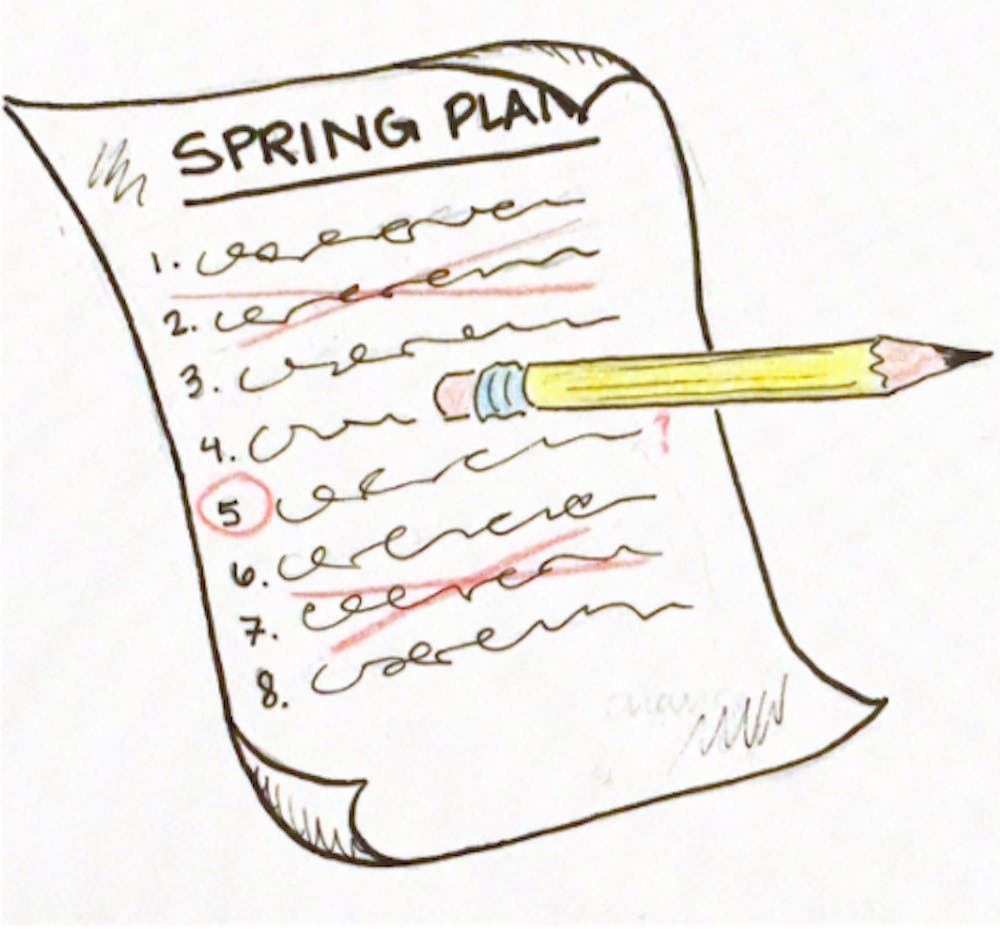The college will replace its three-phase model for relaxing safety restrictions and eliminate its Covid-19 violations reporting form. These changes are among a new set of Covid-19 policies and procedures for the spring outlined by the college, which also include additions of indoor and outdoor spaces, changes to meal delivery during room quarantine and new means of communicating health guidelines.
Instead of distinguishing specific phases, the college will outline permissions on a weekly basis.
“We will create a Campus Status webpage on how to stay safe, with what is and is not permitted on campus each week, based on conditions in Addison County, Vermont and the nation,” Environmental Health and Safety Officer Jen Kazmierczak said in an email to The Campus.
The college will also be phasing out its Covid-19 violations reporting form, dubbed go/snitch by students, after observing that it created an “unhealthy atmosphere” of surveillance on campus.
“Students described a fear of inadvertently making a mistake, being reported and ending up facing a Covid-19 health and safety violation,” Dean of Students Derek Doucet said in an email announcement. “These consequences were unanticipated and unintentional. They are also deeply concerning.”
The form will still be open to townspeople wishing to report concerns, and Doucet told students to bring their concerns about violations to their residence directors, their deans, the Office of Community Standards or Public Safety.
Room quarantine will also look different this spring. Students can expect to find their rooms stocked with beverages and snacks upon arrival this spring, a change intended to lighten meal bags. All meals will be delivered to students’ rooms through lunch on Feb. 25.
During the fall semester, many students gathered outside to share meals and socialize, an option that is less viable amid winter weather. In response, dining and facilities are creating more areas for warmer outside gatherings and indoor meals.
Facilities staff are currently constructing new Adirondack chairs, assembling fire pits and setting up outside recreation areas for students to socialize safely.
“As far as indoor seating, we do have some exciting news,” Executive Director of Food Service Operations Dan Detora said. “All dining halls will have outdoor tents, similar to the fall; however, they will be much more enclosed, heated and built for the winter months.”
Additionally, new indoor dining spaces are opening in Proctor and Ross. This expansion includes the area that typically houses the college bookstore, which will be converted to dining space for the spring. The bookstore is relocating to the Crest Room in McCullough Student Center. Students will be able to eat inside after a negative Day Seven test.
Like the fall semester, students will initially be required to visit an assigned dining hall. Dining services hopes to bring back food trucks once warmer weather arrives.
In addition to more social and dining spaces, students can also expect to see an increase in study areas. Although most of the library operations will remain the same, reservable study rooms are set to increase following their popularity last fall. With a number of library staff working remotely, Dean of the Library Mike Roy said they will repurpose 15 staff offices so that students have more places to do work.
“I think students really liked having a space where they could take off their face covering and also because they needed acoustically private space for doing Zoom class,” Roy said.
Also new this semester are weekly webinar office hours to answer questions and concerns, held by Dean of Students Derek Doucet, Chief Health Officer Mark Peluso and Kazmierczak.
As Feb. 21 and 22 near and Vermont’s new daily Covid-19 cases remain higher than when students left in November, health administrators are urging students to adhere to the 14-day pre-arrival quarantine.
“Students’ observance of this in the fall was one of the reasons why the semester was a success,” Peluso said. “With conditions changing, it’s even more important for students to follow all the necessary steps for a successful quarantine.”

Charlie Keohane ’24 (she/her) is an Editor at Large. She previously served as the SGA Correspondent and a Senior Writer.
She is an environmental writing major and a psychology minor from Northern California. Outside of academics, Charlie is a Senior Admissions Fellow at the Middlebury Admissions Office. She also is involved with the women’s track team and hosts Witching Hour, a radio show on 91.1 WRMC. In Spring 2023, she studied abroad in Copenhagen, Denmark. In her free time, she enjoys hiking, watching Greta Gerwig movies, polar plunging, sending snail mail, and FaceTiming her rescue dog, Poppy.




